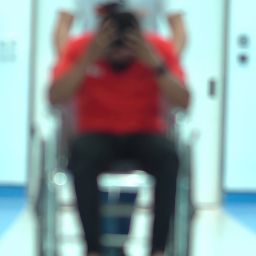Rehabilitation is a monumental step in the journey to recovery. Once you’re on the path to sobriety, the next crucial challenge is reintegrating into the workforce. For many, the transition from addiction recovery to career opportunities can feel overwhelming, especially when considering the competitive nature of Baltimore’s job market. But don’t worry — with the right mindset, tools, and preparation, you can set yourself up for success. Whether you’re gearing up to land your dream job or starting fresh with post-rehab jobs, this guide will equip you with essential tips for navigating the Baltimore’s job market after rehab.
Understanding Baltimore’s Job Market
If you’re re-entering the workforce after addiction recovery, it’s important to understand Baltimore’s job market. The city has a unique economy, with various industries ranging from healthcare and education to technology and manufacturing. Being a major metropolitan area, Baltimore offers both entry-level positions and opportunities for career advancement. But like many competitive job markets, it’s important to know where your skills fit and how to approach potential employers.
The good news? Employers in Baltimore, especially in certain industries, are increasingly embracing inclusivity and supporting individuals with diverse backgrounds, including those in recovery. It’s all about finding the right match for your skillset and aspirations.
Why Job Readiness Matters After Rehab
Why is job readiness so crucial for individuals fresh out of rehab? It’s simple. Your career can be a powerful tool in your journey to long-term sobriety. Not only does a job offer financial independence, but it also provides structure, purpose, and a sense of accomplishment — all of which are crucial in preventing relapse.
Job readiness means you’re prepared both mentally and professionally to re-enter the workforce. It involves having the necessary skills, confidence, and mindset to succeed in a new work environment. Without proper preparation, you might feel overwhelmed, and that can negatively impact your recovery journey.
Assessing Your Skills and Strengths
The first step to preparing for the Baltimore’s job market is taking a deep dive into your skills and strengths. It’s time to get introspective! Think about the tasks you’re good at, the industries you’ve worked in (or would like to explore), and what you’ve learned during your recovery process. Did you develop new coping strategies? Did your time management and stress-handling skills improve? These are all transferable skills that can make you a strong candidate in the Baltimore employment scene.
If you’re unsure where to start, try these exercises:
- List out your hard skills (e.g., software proficiency, technical expertise).
- Identify soft skills you’ve honed during recovery (e.g., emotional intelligence, communication).
- Consider taking online assessments or working with a career counselor to pinpoint where you’ll thrive.
The Power of a Strong Resume
A well-crafted resume is your first impression with potential employers, so it’s important to make it count. Whether you’re applying for jobs in Baltimore or beyond, a strong resume can set you apart from other candidates. But what makes a resume truly shine?
Key elements of a standout resume:
- Contact Information: Ensure your name, phone number, email, and LinkedIn profile are updated.
- Professional Summary: A brief, compelling statement about your career goals and what you bring to the table.
- Skills: Highlight both technical and soft skills, particularly ones that make you a great fit for the job.
- Work Experience: List relevant roles in reverse chronological order, with bullet points that showcase your achievements.
- Education/Certifications: If applicable, include degrees, certifications, and training programs.
How to Address Employment Gaps Post-Rehab
One of the biggest concerns many people face post-rehab is how to explain employment gaps. Employers are increasingly understanding of these gaps, especially if you can explain them in a positive, growth-oriented light.
Here are some strategies:
- Be Honest, But Brief: You don’t need to go into deep detail about your rehab journey. Simply state that you took time off for personal health reasons and that you’re now ready to return with a renewed focus.
- Focus on Growth: Highlight any personal or professional growth you experienced during this period, whether it’s new skills you developed, volunteer work, or personal achievements.
- Practice Your Pitch: Prepare a confident, concise explanation to use in interviews or cover letters.
Utilizing Career Resources in Baltimore
Luckily, Baltimore offers a wealth of resources for those seeking employment after rehab. From job training programs to rehabilitation centers that provide career counseling, there are plenty of tools at your disposal.
Top resources for career support in Baltimore:
- Maryland Workforce Exchange: Offers job listings, career advice, and resume workshops.
- Baltimore Job Corps Center: Provides career training and placement services.
- RecoveryWorks: Specializes in connecting individuals in recovery with supportive job environments.
Networking: Your Secret Weapon
They say, “It’s not what you know, but who you know.” While having strong skills is crucial, networking can often be the key to landing the perfect job. Networking is about building relationships, seeking advice, and making meaningful connections within your industry.
Start by:
- Reaching out to old contacts: Friends, former coworkers, or supervisors who can provide references or job leads.
- Attending local events: Whether in-person or virtual, networking events allow you to meet people in your field.
- Leveraging LinkedIn: Make sure your LinkedIn profile is up-to-date and connect with professionals in your desired industry.
Interview Preparation for Post-Rehab Jobs
Getting an interview is exciting, but it can also be nerve-wracking — especially if you’re unsure how to address your time in rehab. The key to interview preparation is practice, practice, practice. Prepare for challenging questions and practice your responses for better results.
Here’s how to prepare:
- Practice answers to common interview questions: Be ready to answer questions like “Why did you leave your last job?” or “What have you been doing recently?”
- Highlight your strengths: Emphasize your unique qualifications and how they align with the job requirements.
- Prepare your personal pitch: Keep your story brief but positive. Frame your recovery as a time of personal growth that has made you stronger.
Balancing Sobriety and Career Growth
Once you’ve landed a job, the next challenge is balancing sobriety with your career goals. Starting a new job can be challenging for those in recovery due to increased stress and expectations. However, with the right strategies, you can maintain your sobriety and succeed.
Tips for balancing sobriety with your career:
- Set boundaries: Be clear about what you need to stay healthy, whether it’s avoiding certain social situations or sticking to a set schedule.
- Create a support network: Whether it’s friends, family, or coworkers, surround yourself with people who support your recovery.
- Stay focused on your goals: Regularly remind yourself why your sobriety and career are important to you.
Staying Persistent in the Job Hunt
Let’s face it — finding a job can be tough and challenging. It might take longer than expected to find the right role, and there might be moments where you feel like giving up. But persistence is key. The more struggle you do for a better future, the more success will come your way.
Here’s how to stay motivated:
- Set daily goals: Whether it’s sending out five applications or attending one networking event, set small, achievable targets.
- Take breaks when needed: Job hunting can be exhausting. Don’t be afraid to step back and recharge when necessary.
- Celebrate small wins: Whether it’s landing an interview or receiving positive feedback, acknowledge your progress.
Finding Career Opportunities in Baltimore
Looking for career opportunities in Baltimore? There are a few key industries to focus on. Healthcare, education, technology, and hospitality are all booming in the city. Whether you’re looking for entry-level positions or something more advanced, there’s plenty of potential.
Managing Stress and Anxiety in the Workplace
Starting a new job comes with its own set of stressors. Managing workplace stress is key to maintaining sobriety and thriving in your new career. Stress and anxiety can trigger negative emotions, but with the right strategies, you can manage them and stay in control.
Strategies to Manage Stress and Anxiety at Work:
- Practice mindfulness: Take a few minutes each day to clear your mind, breathe deeply, and focus on the present. Mindfulness practices can help alleviate anxiety and enhance concentration.
- Take regular breaks: Don’t forget to step away from your desk and take short breaks throughout the day to prevent burnout and reduce stress.
- Communicate: If you’re feeling overwhelmed, communicate openly with your supervisor. Many employers are supportive and may offer flexibility to help you manage work stress.
- Create a daily routine: Structure helps combat chaos. Create a consistent workday routine to manage your tasks and minimize unexpected surprises.
- Seek support: Don’t be afraid to ask for help. Whether it’s a therapist, recovery group, or trusted coworker, leaning on others can provide relief when stress builds up.
Job Flexibility: Is Freelancing or Remote Work Right for You?
After completing rehab, you might not feel ready to jump into a 9-to-5 office job, and that’s okay. There are other options that offer more flexibility. Freelancing and remote work are becoming increasingly popular, especially in industries like writing, graphic design, IT, and marketing.
Benefits of Freelancing and Remote Work:
- Flexibility: You can create a schedule that fits your needs and lifestyle, which is particularly helpful when managing sobriety.
- Work-life balance: Many remote jobs allow you to work from the comfort of your home, which can reduce the stress of commuting and office politics.
- Control over workload: Freelancers have the freedom to choose how much work they take on, allowing for more control over the pace of their professional life.
If you prefer a more gradual transition into the workforce, job flexibility may be the perfect option to explore. Sites like Upwork, Fiverr, and LinkedIn are great places to start your search for freelance or remote roles.
Building a Support System for Career Success
Support systems play a critical role in helping you maintain sobriety and advance in your career. You don’t have to go through this process alone. Whether it’s a mentor, family member, or recovery group, surrounding yourself with positive influences can make all the difference.
Ways to Build a Support System:
- Join a recovery group: Many cities, including Baltimore, offer support groups for individuals in recovery. These groups provide a safe space to share challenges, celebrate successes, and seek advice.
- Find a mentor: Having a professional mentor can help guide you through the job market and provide valuable career advice.
- Stay connected with loved ones: Family and friends can be an important source of emotional support, helping you stay grounded as you pursue your career goals.
A strong support system will not only help you stay sober, but it will also give you the encouragement and motivation needed to succeed in the workplace.
Conclusion
Re-entering the workforce after rehab can feel like a daunting task, but with the right preparation and mindset, you can thrive in Baltimore’s job market. Job readiness is more than just brushing up on skills or crafting the perfect resume; it’s about building confidence, embracing new opportunities, and setting yourself up for long-term success.
Remember, it’s okay to start small, take your time, and stay patient. Career opportunities in Baltimore are diverse, and whether you’re pursuing post-rehab jobs in healthcare, education, or even freelancing, the key is to stay focused and persistent. As you navigate your path forward, lean on your support system, make use of local resources, and don’t be afraid to network. With each step, you’re not just building a career — you’re building a new life, one full of purpose, stability, and growth.
So, are you ready to dive into the job market and create your new chapter? Your journey to success starts now. Keep going, stay strong, and trust in your ability to create a fulfilling career after recovery.







